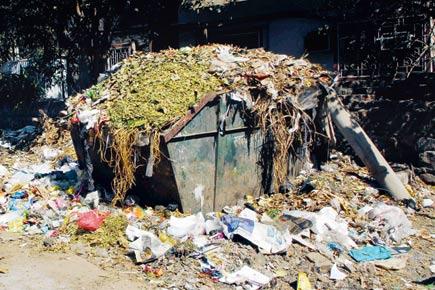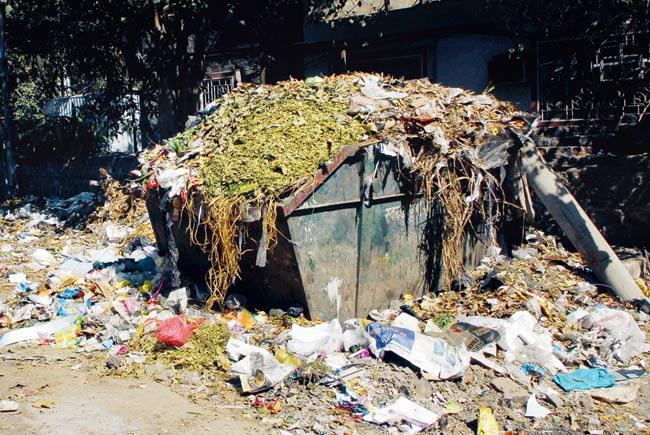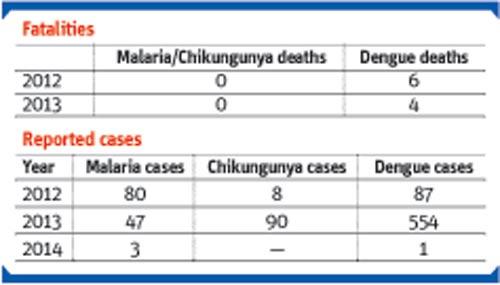Doctors say unhygienic conditions, uncovered dustbins, improper disposal of garbage are the reasons behind the rise

Trash talk: Some of the main reasons for the spread of diseases are uncovered dustbins and improper disposal of garbage
Every year, about 50 per cent of the world's population is at risk of vector-borne diseases, making up for 17 per cent of all infectious diseases, causing more than 1 million deaths annually.
Trash talk: Some of the main reasons for the spread of diseases are uncovered dustbins and improper disposal of garbage
ADVERTISEMENT
Going by these statistics, the World Health Organisation (WHO) is targeting vector-borne diseases, and has started a campaign called 'Small bite: big threat'. In Pune, this issue has gone viral, as vector-borne diseases have doubled in the past year.
Dr Atul Joshi from Sahyadri Hospital said, "There is an increase in the number of vector-borne diseases in the city and the reasons are manifold — unhygienic conditions surrounding residential areas, uncovered dustbins, improper disposal of garbage and apathetic approach of the health department."
Doctors said that the victims of these debilitating viral diseases are mostly children. Jehangir Hospital alone has examined and treated nearly 200 children suffering from vector-borne diseases last year.
Dr Sanjay Bafna, consultant paediatrician from the hospital said, "There has been a steady rise in such diseases among children due to precautionary measures not being implemented efficiently. These diseases can lead to serious complications and even result in death. Preventive steps need to be taken effectively to keep diseases under control."
Dr Deepa Divekar, medical director of Sahyadri Hospitals and director of research and academics, said, "When we see symptoms like chills in our infant patients, we suggest various tests like rapid malaria test and other necessary ones.
If the case is serious, the patient is shifted to the ICU where the beds are covered with mosquito nets. In such cases, special care is taken by the infection control team of our hospital."
Vector-borne infectious diseases are emerging due to resistance from insecticides and drugs, shift in emphasis from prevention to emergency response, demographic and societal changes, and genetic changes in pathogens.
Divekar said, "The civic body should sanitise areas that are breeding grounds for mosquitoes like nurseries, public toilets and stagnant water ponds by spraying."
Officialspeak
Assistant Medical Officer (Insect Control), Pune Municipal Corporation, Dr Vaishali Jadhav, said, "In the city, the cases of malaria and chikungunya have reduced but the cases of dengue are on the rise.
There were no deaths caused due to malaria or Chikungunya during 2012-14, but in 2012, there were six deaths caused by dengue and five in 2013, and no reported deaths till now in 2014."
It has been observed that mosquito breeding sites in the city have increased, as it is has risen by nearly seven per cent in such sites from 2012 to 2013.
Jadhav added, "We are identifying breeding sites and treating them with guppy fish, which eat up the larvae. They are usually found in areas where construction work is on.
 Subscribe today by clicking the link and stay updated with the latest news!" Click here!
Subscribe today by clicking the link and stay updated with the latest news!" Click here!






